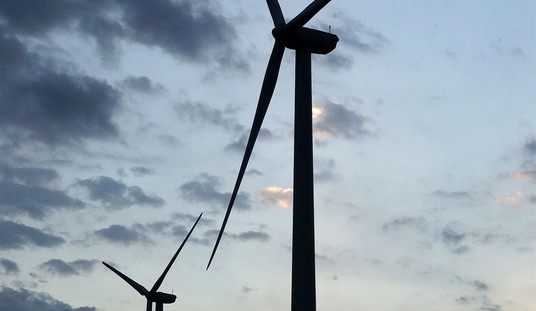As Matt Drudge puts it, Obama Redistribution Victory. The percentage of American income from private wages fell to a low of 41.9% in the first quarter of this year, down from 44.6% in the final quarter of 2007. The percentage of income from government programs rose to 17.9%, up from 14.2%, and government wages rose to 9.8%:
Paychecks from private business shrank to their smallest share of personal income in U.S. history during the first quarter of this year, a USA TODAY analysis of government data finds.At the same time, government-provided benefits — from Social Security, unemployment insurance, food stamps and other programs — rose to a record high during the first three months of 2010.
Those records reflect a long-term trend accelerated by the recession and the federal stimulus program to counteract the downturn. The result is a major shift in the source of personal income from private wages to government programs.
That means trouble ahead:
The trend is not sustainable, says University of Michigan economist Donald Grimes. Reason: The federal government depends on private wages to generate income taxes to pay for its ever-more-expensive programs. Government-generated income is taxed at lower rates or not at all, he says. “This is really important,” Grimes says.
This comes before the federal health-insurance subsidies hit in 2014, too. That program provides federal welfare payments to families making less than $88,000 a year who buy their health insurance through the state-run individual exchanges. As more employers dump health-insurance coverage (and they will), more Americans will move into the dependent class despite making as much as 400% above the poverty level and better household income than 60% of their fellow Americans.
The USA Today article quotes a liberal think-tank analyst as saying that this shows that “the system worked,” and that private wages will rebound when the economy recovers. We need capital to flow back into the markets to get that recovery, however, and as long as government keeps seizing more of it, the recovery will either be weakened or practically nonexistent.
As far as the system working “as it should,” in the words of Paul Van de Water, it depends on what the system was designed to do. If it was to create wider dependence on government largesse and keep capital from working towards private-sector growth, then yes, Van de Walter is entirely correct. If we want to have a real economic recovery, then we need to curtail government welfare programs and stop expanding the dependent class in the US.
It’s more than just unsustainable. We were already on an unsustainable path before Barack Obama got elected President, with pending entitlement disasters in Medicare and Social Security threatening financial oblivion. In the past sixteen months, we’ve doubled down on disaster, and the accelerated redistribution of wealth through entitlements has us careening towards it at breakneck speed.








Join the conversation as a VIP Member